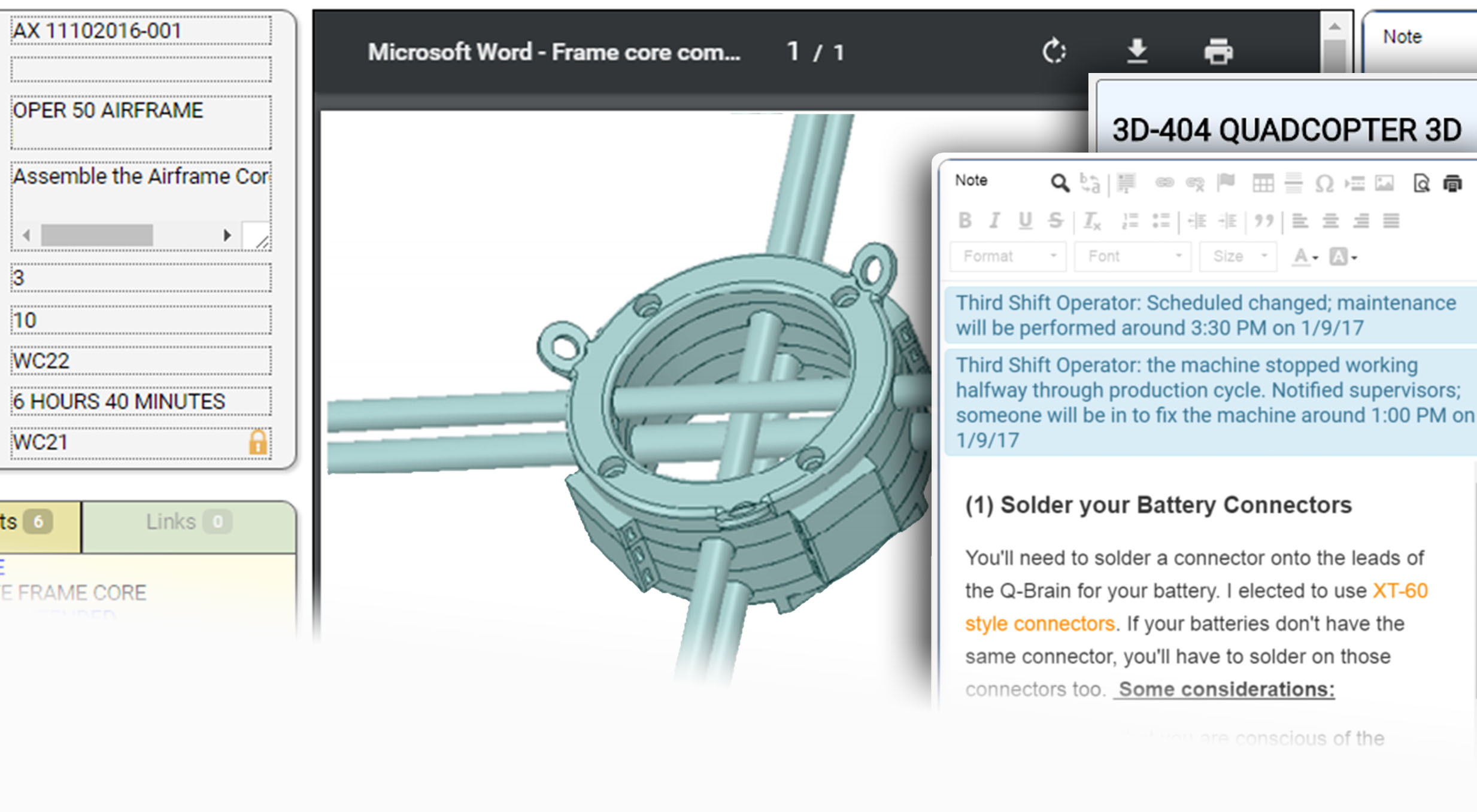The 5 Critical Requirements When Researching Production Control Systems
Which ERPs Can Manage Production? | Part 2 of 2 In part 2 of our ERP for production series, we cover the critical factors to understand when...
2 min read
David Oeters : December 7, 2017 at 10:42 AM

As 2017 draws to a close, businesses are planning for success in 2018. For make-to-order manufacturers, this means setting realistic sales and production goals. Success may require new products lines, attacking a new market vertical, or delivering new services to an existing customer base.
Setting goals is easy – successfully delivering on those goals can be difficult.
New product lines require agility, workflow flexibility and production control. Execution quality is critical, or you run the risk of losing customers before you ever really had them. Best practices for new workflows require process enforcement. Quick and accurate responses to variability are absolutely essential. Efficiency is the difference between success and failure.
Meeting goals requires preparation. The planning you do now will result in 2018 success. Here are four questions you should ask as you prepare for the New Year:
The key to overcoming process variability is data. The granular process data that currently eludes manufacturers using dated, paper-based processes is critical to diagnosing problems during production and implementing rapid solutions. With real-time accurate data, companies can implement feedback loops, shortening the response to variability, adjusting processes with speed and accuracy so the business can roll out new products faster.
Simply selling a new product or serving a new market isn’t a guarantee of success. True success is measured by the bottom line. Accurately calculating profit requires a precise view of production costs. You need to not only know your spend, but also costs and savings in the manufacturing lifecycle. The data and events surrounding expenditures will unlock potential additional savings that ensure profitable work and more accurate estimates.
When implementing a new process or rolling out a new product, best practices are critical. Any deficiency in workflow or processes will result in recurring costs, late shipments and quality escapes. Procedural enforcement, production visibility, real-time operator buy-offs and automated tolerance checks deliver shop floor control. Revision-controlled engineering documentation and digital work instructions eliminate errors on the front-end, providing the complete manufacturing lifecycle control manufacturers need.
Business moves fast. Increasing production yield or attacking a new vertical will only increase the pace of change. If you can’t manage change, and still rely on a red pen for every Engineering Change Order (ECO), you are increasing risk at an unsustainable rate. Experience has shown a single change can have an explosive effect on the manufacturing lifecycle, exponentially increasing the time and cost of production across the shop floor.
Answering these questions will identify the gaps in your current processes. These gaps are magnified as production is pushed to increase output and meet the requirements of a new market.
Address these gaps before you invest time and effort in a new product line or pursue a new market. Digital manufacturing software will transition your company from outdated methods to true production control that aligns current capability with aggressive business goals.
Contact CIMxContact CIMx software today to speak with an experienced Application Engineer about low-cost technology tools available now that can deliver shop floor and production control for the competitive edge your company needs in 2018.
Which ERPs Can Manage Production? | Part 2 of 2 In part 2 of our ERP for production series, we cover the critical factors to understand when...

1 min read
As companies work to comply with changing regulations in the Medical Device industry, there is an opportunity to improve production and revenue for...

Many companies play a waiting game with their shop floor improvements, letting profit and opportunity slip through their fingers. Winston Churchill...